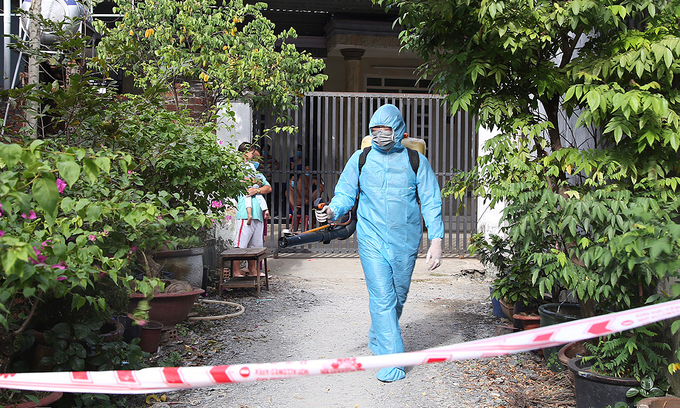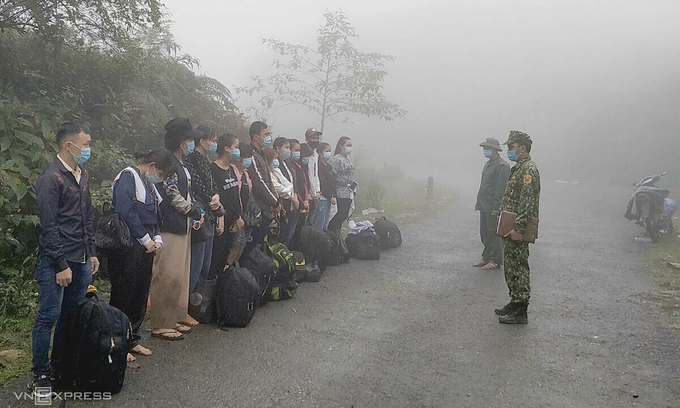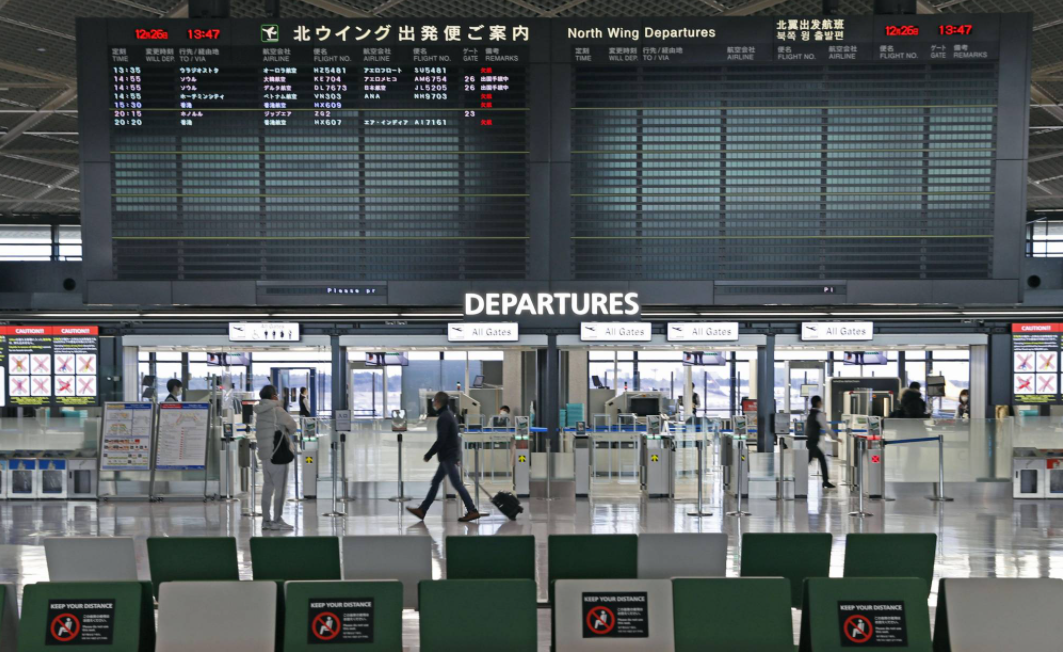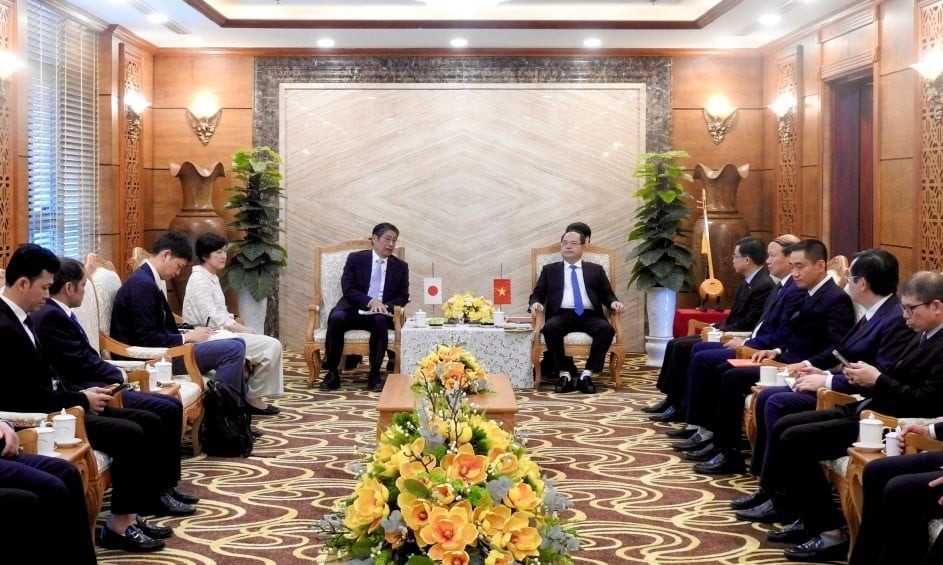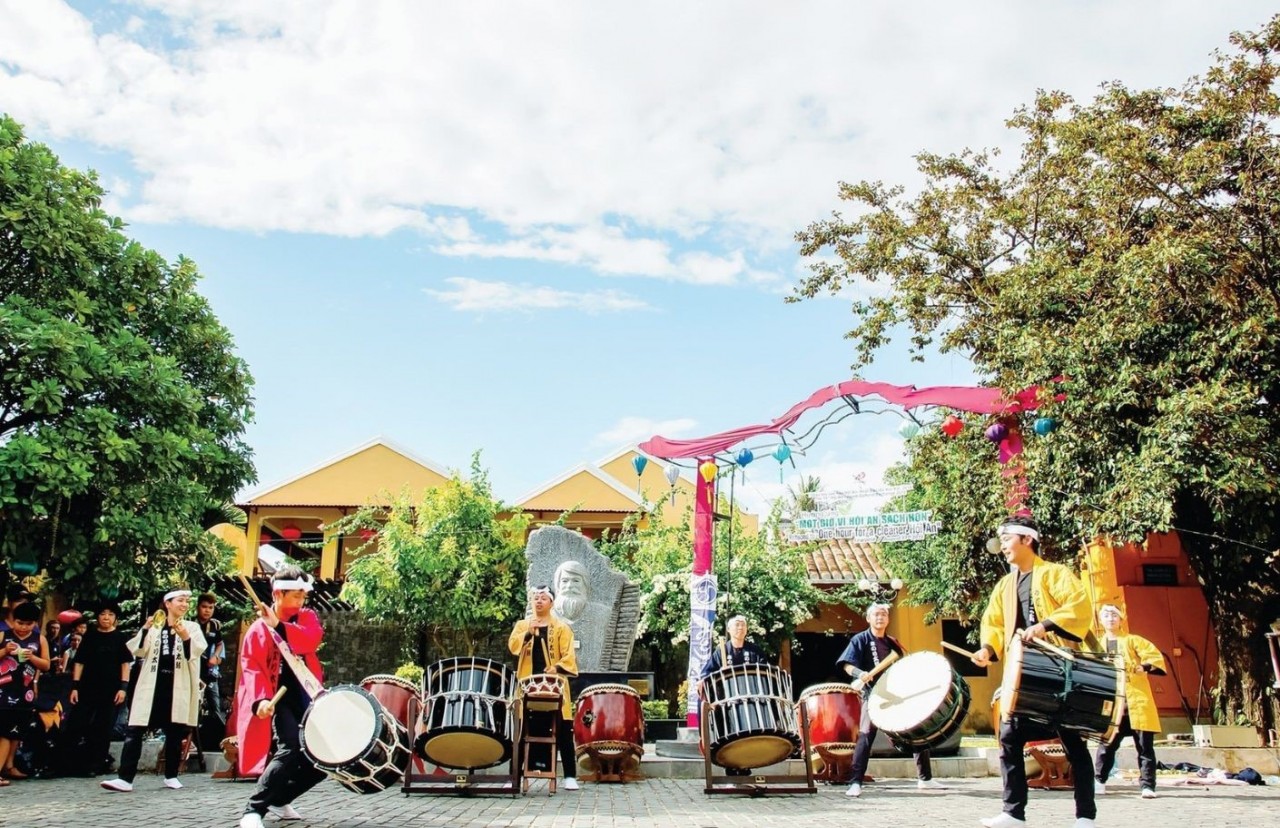Japan suspends entry of all non-resident foreign nationals over new virus variant
 |
| The departure lobby for international flights at Kansai International Airport is vacant on Jan. 5. Photo: Kyodo |
The government last month halted new entries worldwide, except business travelers and students from Taiwan and 10 Asian countries -- Brunei, Cambodia, China, Laos, Malaysia, Myanmar, Thailand, Singapore, South Korea, and Vietnam -- had been exempt, Kyodo News reported.
The special treatment will be halted until Feb. 7, the last day of an ongoing state of emergency in the Tokyo metropolitan area and some other parts of Japan, Suga said at a press conference.
For the suspension, Suga said, "We will swiftly complete arrangements" with the 10 countries and Taiwan, adding that he "took seriously growing anxieties among the Japanese people."
For Japanese and resident foreigners who are allowed to enter, Yasutoshi Nishimura, Minister in charge of the country's coronavirus response, said it will require them to sign a pledge upon arrival to stay in quarantine for 14 days, and violating it would result in penalties, such as disclosing the names of violators.
In addition, foreign residents who breach the 14-day quarantine rule will have their resident status revoked and be subject to deportation, Nishimura said at a separate press conference.
The new measures have been taken since Thursday because of a recent case where a man who returned from Britain dined with multiple people during his 14-day self-isolation period and caused the spread of a new strain of the virus.
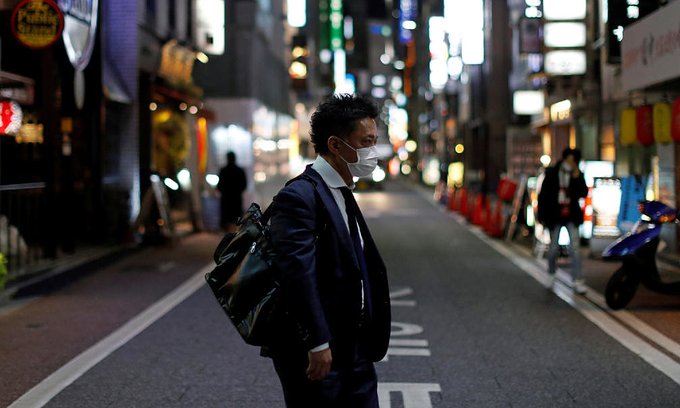 |
| A man wearing a mask walks the street of Tokyo, Japan, December 2020. Photo: Reuters |
Suga announced the entry suspension involving the 10 countries and Taiwan shortly after he declared a state of emergency in Osaka, Aichi, and five other prefectures.
Just days earlier, he said during a TV interview that Japan would continue allowing the entries as long as new coronavirus variants, feared to be more infectious, were not detected within their populations.
But lawmakers within his Liberal Democratic Party had pushed for the exemption to be suspended, arguing it was contradictory to ask Japanese people to stay home under the state of emergency while allowing nonresident foreign nationals into the country.
On December 28, Japan had stopped new entries into the country to halt the spread of new coronavirus variants that were spreading in the U.K., South Africa, and other regions. But those entering Japan through the business visit program was still allowed.
Between Jan. 4 and last Sunday, as many as 11,546 people, mainly from Vietnam and China, had entered Japan using the reciprocal business travel programs, according to Justice Ministry data.
Last year, Japan had eased travel restrictions on Vietnamese and some other nationals in an effort to revive its battered economy, allowing non-tourist arrivals.
Its embassy in Vietnam started to issue visas in late November for short-term commercial purposes such as market research, negotiations and signing contracts, cultural exchanges, training programs, and long-term stay.
Japan has had over 297,000 Covid-19 cases so far and 4,100 deaths.
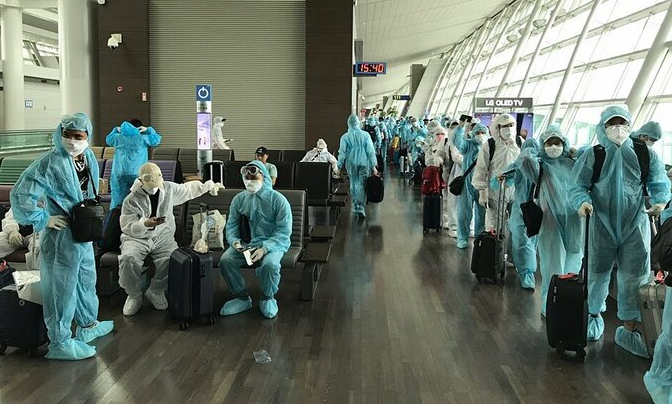 | COVID-19 Updates (Dec. 15): Vietnam-RoK agreed to short-term entry procedures South Korea and Vietnam have agreed on quarantine-free procedures for short visits of fewer than 14 days. |
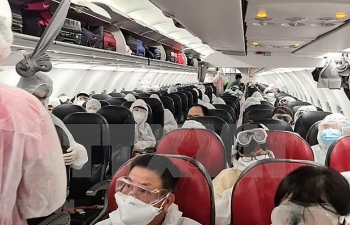 | Vietnam, RoK to lift mandatory quarantine for short-term entry from Jan 1 Vietnam and the Republic of Korea (RoK) have agreed on quarantine-free procedures for short visits of fewer than 14 days for the purposes of investment, ... |
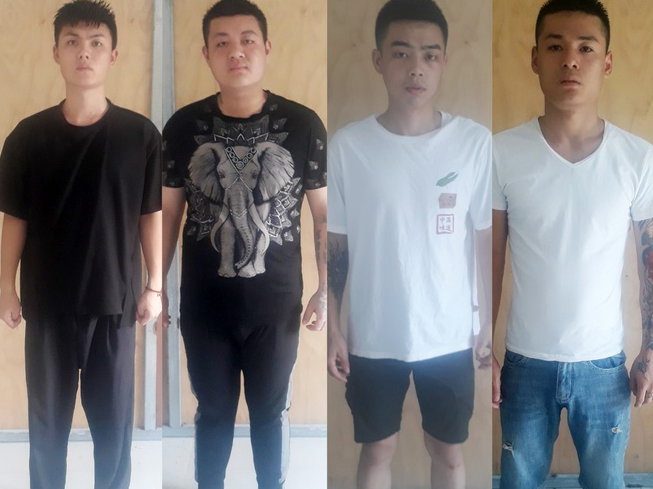 | 4 illegally imported Chinese put in quarantine in Kien Giang Four Chinese citizens illegally entered the northern border of Vietnam and moved to Kien Giang in order to enter Cambodia have already been quarantined. |
Recommended
 World
World
Pakistan NCRC report explores emerging child rights issues
 World
World
"India has right to defend herself against terror," says German Foreign Minister, endorses Op Sindoor
 World
World
‘We stand with India’: Japan, UAE back New Delhi over its global outreach against terror
 World
World
'Action Was Entirely Justifiable': Former US NSA John Bolton Backs India's Right After Pahalgam Attack
 World
World
US, China Conclude Trade Talks with Positive Outcome
 World
World
Nifty, Sensex jumped more than 2% in opening as India-Pakistan tensions ease
 World
World
Easing of US-China Tariffs: Markets React Positively, Experts Remain Cautious
 World
World

